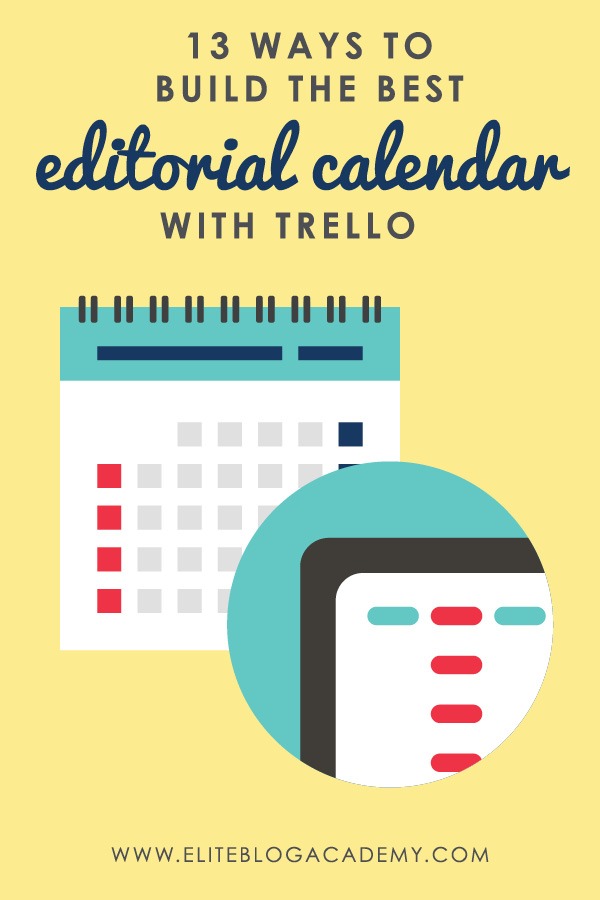Give Your Readers the One Thing They Crave Most

Ever fear people might find out you’re not the expert they think you are? Here’s how to overcome Impostor Syndrome and instead learn how give your readers the one thing they crave most of all.
Has there ever been a time in your blogging career when you felt like a fraud? Like you were pulling the wool over your readers’ eyes? And if they could only see the REAL you, they would know you were a fake and run in the opposite direction?
It actually has a name–it’s called “Impostor Syndrome.”

Struggling to create Reels that grab your dream customer?
Our Instagram Reel Playbook will not only give you 50 ready-to-use hooks, proven to grab your audience’s attention from the start, but we’ll show you our proven strategy for reels that convert.
Wikipedia refers to impostor syndrome as “a concept describing high-achieving individuals who are marked by an inability to internalize their accomplishments and a persistent fear of being exposed as a ‘fraud'”.
Sound familiar?
And I have a confession to make–I struggle with this all the time! Most people assume I started my own blog Living Well Spending Less because I’m an expert on money. But the opposite is true. I started LWSL because I was a complete and utter disaster when it came to finances.
And if you ever read the one-star reviews of my book, Living Well Spending Less: 12 Secrets of the Good Life, on Amazon, you’ll notice that many of them come from people who were expecting me to be super frugal or some sort of money-saving expert.
But I said it right on the first page of my book. I wasn’t a money-SAVING expert. I was a money-SPENDING expert. In fact, I’m still kind of a disaster when it comes to money.
But you know what? That “realness,” that admission that I don’t have it all together all the time, is also what endears me to people.
I’m not coming from a place of “Look at me, I’m an expert and I’m going to tell you what to do.”
I’m coming from a place of “Hey, I struggle with money, and these are some of the things that have helped me, and maybe they can help you too.” And while there’s definitely people who are all too happy to point out how un-frugal I am, the vast majority of readers can relate. When you blog from the place of walking WITH someone and understanding what it’s like to be in their shoes as opposed to the standpoint of an expert, people will receive your content in a better way.
Now, don’t misunderstand me — credibility is important. You want to give you readers a reason to listen to you. But that doesn’t mean you need to convince everyone you’re an expert when you’re not. It’s about sharing your experiences and your story in order to help your readers. It’s about being real.
Give Your Readers the One Thing They Crave Most
People relate to authenticity. They crave it. It’s not about proving that you’re somehow smarter or better than they are. It’s about being relatable and writing about your experiences in a way that connects with your audience.
Symptoms of Impostor Syndrome
So what are signs that you’re dealing with the dreaded impostor syndrome? What symptoms should you be on the lookout for?
- You spend hours on every post, doing research and looking for tons of facts to back up your opinions (since you don’t want to give the impression you don’t know what you’re talking about!).
- You feel nervous and ashamed when someone asks you a question in your blog comments or on social media that you don’t know the answer to.
- When you talk about your blog or your blog topic, you feel like a “fake”.
- You often compare yourself to other bloggers in your space and feel like you fall short.
- You struggle with feelings of not being good enough for your readers.
- You fear that someone might “find you out” and expose to your readers that you don’t really know what you’re talking about.
- You have tons of posts that have never been published because, even though you worked on them for days, you didn’t feel like they were good enough for your readers.
- No matter how much praise or accolades you receive for your blog, you still feel you’re not qualified.
If you’re dealing with any of these symptoms, then you, my friend, are struggling with impostor syndrome.
Impostor Syndrome in Action
A perfect example of impostor syndrome in action happened to me earlier this year, when I released another book “Unstuffed: Decluttering Your Whole Mind and Soul”. Obviously, it was a book about decluttering. I wrote the book not because I’m an expert on clearing clutter, but because clutter was (and is) something I really struggle with.
I talked about it a lot in my first book, but I was a BIG shopper. I filled our house with stuff–lots of it. And then we had to dig ourselves out of that mountain of stuff I had created. It was — and sometimes still is, to this day — a struggle.
So I wrote Unstuffed to help other people deal with clutter. It’s not from the perspective of a professional organizer, because CLEARLY that’s not what I am. I’m a person who’s struggled with too much stuff, and I’m trying to figure out how to deal with it, which is the place the book is coming from.
I felt great about that. I wasn’t trying to be Marie Kondo or show people I had it all figured out.
Then my publisher hired a PR company, who pitched the book to several media outlets. But they weren’t getting much of a response, and they started to get frustrated. A week before the book was released, my PR company sent me an email that basically said all the media outlets they were pitching had read my blog and were having trouble accepting me as a decluttering and organizing expert.
At that moment, I felt like a total impostor.
It wasn’t a good feeling. I felt like someone had pulled the covers out from under me. But then I thought, “Well, of course they are having trouble accepting me as an expert! I’m not a decluttering and organizing expert, and I’ve never claimed to be.”
I had to go back to my PR company and explain that they were pitching my book from the completely wrong angle. I’m not an expert, I don’t want to be an expert, and if they pitched me that way, no one would be interested.
Once we switched our approach and started pitching the book the way I intended, everything shifted and we got the media interest we needed. I felt better because I was able to stay authentic to the spirit of my book.
How to Stop Impostor Syndrome in Its Tracks
Every blogger I know struggles with impostor syndrome at least once in a while. But it doesn’t have to stop you. The most important thing to do is to keep moving forward and striving for your goals, even when impostor syndrome does everything it can to hold you back.
So how can you stop impostor syndrome in its tracks before it stops you from getting to where you want to be?
-
Cut Yourself Some Slack
If you’re finding yourself feeling like a fraud, take a deep breath and cut yourself a little slack. Remember, no one will ever judge you as harshly as you judge yourself. You don’t have to be an expert. No one is expecting you to be an expert. All you need to do is show up and be you.
-
Remind Yourself That It’s About Being Relatable, NOT About Being an Expert
When impostor syndrome creeps up on you, remind yourself that blogging is about being relatable, NOT about being an expert. You don’t have to know everything there is to know about your blog topic to be helpful to your audience. Readers aren’t coming to your blog expecting to find a textbook.
The beauty of blogging is that it’s so much more personal than other mediums. People read your blog because they want to know about your experience with your topic. People relate so much more when you share your journey and your struggles. It helps them identify with you far more than a bunch of facts ever could.
If you’re authentic, honest, and relatable, your readers will keep coming back, whether you’re an expert or not.
-
Don’t Let the Perfect Be the Enemy of the Good
When you’re struggling with impostor syndrome, you can spend hours, days, or weeks polishing up a post and trying to make it perfect before you share it with your readers. But here’s a little newsflash: It will never be perfect. In fact, perfect doesn’t exist. And if you wait until your post is perfect to hit the “publish” button, you’re going to end up with an empty blog and a WordPress dashboard full of unpublished drafts.
Don’t let the perfect be the enemy of the good. Do your best, and when you’re finished, hit publish.
If you’re struggling with impostor syndrome, know you’re not alone. Every blogger, at one time or another, has felt like a total fraud–me included! But what I want you to know is that you’re NOT an impostor. The fact that you’re putting yourself out there, sharing your story, and doing your part to help your readers makes you the real deal.
So the next time impostor syndrome rears its ugly head and tries to make you believe you’re a fraud, shut it down. You don’t have to be an expert. You don’t have to be the best. You just have to be you. And that’s more than enough.








I just signed up for EBA 3.0 and came across this post while doing my pre-course work. It’s like you read my mind! So much of what I have written for my blog has not been posted because I lose confidence and either stop writing entirely or never publish it. Thank you for sharing!
LOVE THIS and can’t wait for EBA to begin! My BIGGEST fear is that I’ve always told myself I can’t write! WHAT???? I don’t think I have writing abilities and I am wanting to start a blog???? Crazy, right? Well, I also have exactly what you’ve said here – many experiences, a ton of education and honestly a lot of “stuff” in this head I think could help others. Just keep stopping myself because of my negative thought process with writing. SO, I took a BIG LEAP and joined your next EBA class and I can honestly say I will be giving it EVERYTHING I HAVE to offer great information and literally get out of my own way. Ready for an amazing 2017 and look forward to working with you and some of the many others I’ve followed for months with my unpublished blog!
Such a true post. The way I deal with Imposter Syndrome when it creeps up on me is that I remind myself about the definition of the word “expert” that I subscribe to. For me, an expert can simply be someone who is 1 or 2 steps ahead of the person they are helping. I find comfort in this thought. I don’t claim to be some all-knowing guru, rather I teach people what I know. Sometimes a know a little bit about something and sometimes I know a lot, but in any case, as long as I’m being authentic that’s what counts. Thanks for this post!
A big thank you, Ruth. This post couldn’t have come at a better time. I didn’t realize that the imposter syndrome was the primary thing holding me back from starting. A I guess a part of me did realize it, but another part of me didn’t want to admit it. So now I have a much clearer path to go with my blog and I am truly excited to get it going. The other thing holding me back is time and the internal dialogue that you can’t do it with just an hour or so a day, and maybe some days, not even that. But I can do it. Can you tell I’m going thru your Daily Productivity Guide for Bloggers? 🙂 I am financially tapped out in every direction possible and just could not come up with the funds to get in on the earl bird pricing of EBA, which is such a bummer. But, my time will come. I’m just going to keep on keeping on. Thank you for your “non-expert” wisdom :). Have a great holiday season.